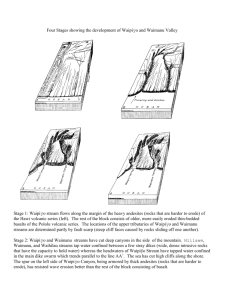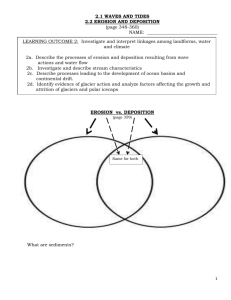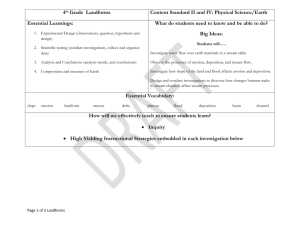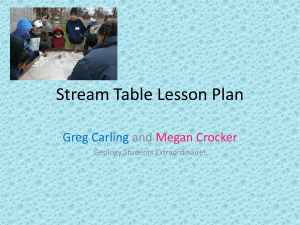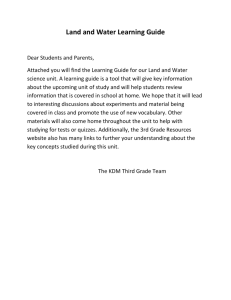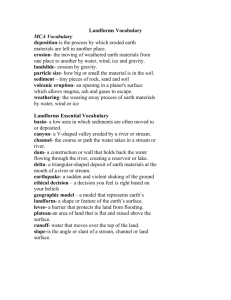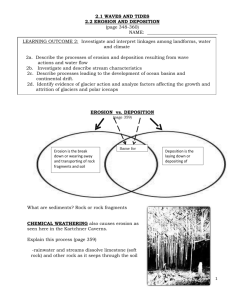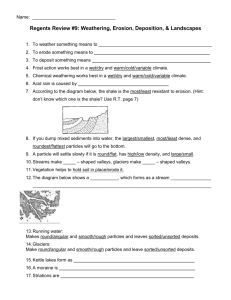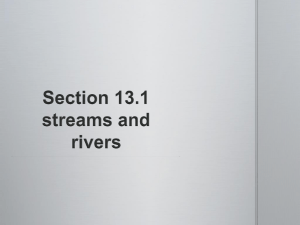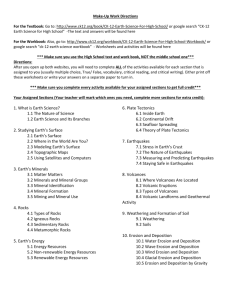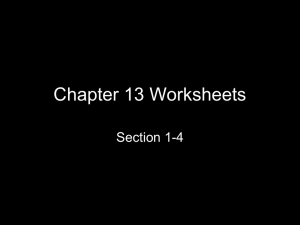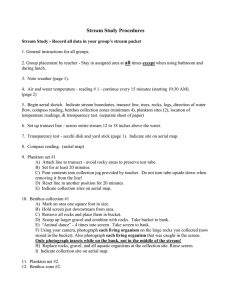you must be in each photograph.
advertisement
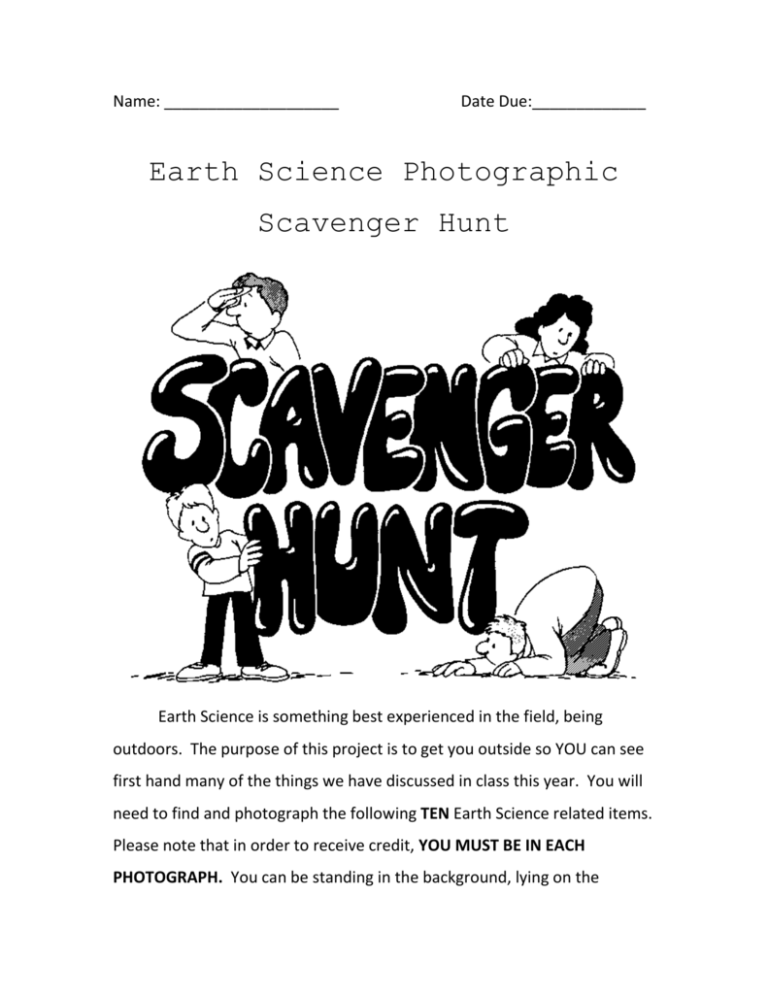
Name: ____________________ Date Due:_____________ Earth Science Photographic Scavenger Hunt Earth Science is something best experienced in the field, being outdoors. The purpose of this project is to get you outside so YOU can see first hand many of the things we have discussed in class this year. You will need to find and photograph the following TEN Earth Science related items. Please note that in order to receive credit, YOU MUST BE IN EACH PHOTOGRAPH. You can be standing in the background, lying on the ground, hanging upside down, etc., just as long as I can tell that you where at the location. You can use a digital camera, or a conventional camera, and you can do the project with other classmates. I would like this project completed in a booklet form, with a COVER PAGE, and each picture clearly labeled. I WILL COUNT THIS PROJECT AS TWO TEST GRADES!!! 10 REQUIRED PICTURES ARE: 1. FROST ACTION: Any type will do. Explain how your picture depicts frost action. Why does frost action happen? Can the damage be repaired? 2. OXIDATION: DO NOT TAKE A PICTURE OF METAL RUSTING. Show me an example of oxidation in the natural environment. Please be careful not to confuse lichens with rust. How do soils show oxidation has occurred? What type of weathering is this? 3. Condensation: Any type will do. What do you know about the air temperature and the dew point temperature for condensation to occur? What time of day is condensation usually present? 4. Stream: Use caution near the water. Any local stream will do. DO NOT USE A DRAINAGE DITCH THAT IS MAN-MADE. See if you can find a large meander to show the difference between erosion and deposition. Indentify in your picture where erosion would be dominant and where deposition would be dominant. Look for small pebbles, or grains of sand being carried along by the stream. How could the Colorado River have formed the Grand Canyon? What physiographic feature has this stream created? 5. V-Shaped Valley: Complete this photo also at the stream location. Look for an area where there are steep cliffs on both sides of the stream that appear to form a “V” when looking up from below. Why is the top wider than the bottom? Is this an example of weathering, erosion, or deposition? How can you tell? 6. Soil Profile: Find someplace where someone has dug a deep hole, maybe a ditch that has recently been dug out, or dig your own. You can scrape away the sides of the cliff near the top when you are taking your V-shaped valley picture. Label the different layers of your soil profile that are visible. Why is soil considered a nonrenewable resource? How has our soil contributed to the development of our community? 7. Glacier Rocks: You can find rocks that farmers collected next to a field that they removed when plowing, or look for specific rocks at the stream, or even near your house. Remember, our underlying bedrock is sedimentary rock; this means that rocks deposited by a glacier will be different. Make sure your photograph of glacier rocks is accurate. What other features could we find locally to indicate a glacier once covered this area? How are glaciers beneficial to our local economy? BONUS – FIND A MISFIT STREAM OR A U-SHAPED VALLYE AND PHOTOGRAPH IT. 8. CUMULUS CLOUD: A nice big puffy one. You may need to be creative to put yourself in the picture. What clouds are associated with rainstorms? Why are cumulus clouds associated with thunderstorms? 9. Phase of the Moon: Take a picture of the moon anywhere between waxing and waning crescents. It may be easier to take a picture of a moon when we can see it during the day. What cause different phases of the moon? What other effects does the moon have on our planet? 10.Natural Resource: We have many natural resources that we use that can be found locally. Find a natural resource, explain what it is, is it renewable or nonrenewable? How is it valuable to us? BONUS: Calculate your families’ total CO-2 emissions. Show me your work. Show me a picture of how your family takes action to go ‘green.’ Give me three things you or your family could do to cut CO-2 emissions. Remember, to make a title page, make sure each picture is labeled with a title, not just a number, and answer any questions that have been directed to you. Teacher Notes: Please give credit to Mr. Chris Visco, from Sachem High School for this idea. I originally found a similar project on his website, and then modified it for my area is Western New York. You can change the point value to anything you like. I found out that the students will complete the assignment when it affects their grade tremendously. It also gives the students who may not perform well on tests to improve their grade. Feel free to change any of the pictures to your locality. I routinely change the required pictures. You could change the pictures to an outcrop, evidence of erosion, evidence of deposition, or any other concepts you want the students to know.
